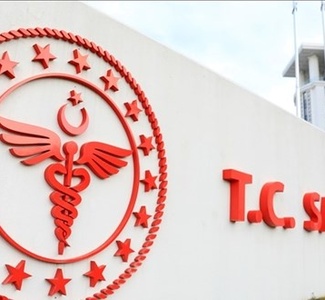Türkiye ranks 18th in global population size
The Turkish Statistical Institute announced on Tuesday that Türkiye holds the 18th position among 194 countries in terms of population size.

 Google News'te Doğruhaber'e abone olun.
Google News'te Doğruhaber'e abone olun. July 11, 1987, marked a significant milestone when the global population reached 5 billion. In 1989, the United Nations Development Program (UNDP) designated this date as "World Population Day" to promote awareness on population and development issues. Each year, the United Nations Population Fund (UNFPA) highlights critical population topics through various activities.
According to the United Nations population estimates for 2023, India is the most populous country with 1,428,627,663 people, followed by China with 1,425,671,352 people, and the United States with 339,996,563 people. These three nations together constitute 39.7% of the world's total population.
Türkiye, with a population of 85,372,377 people, ranks 18th globally, making up 1.1% of the world’s total population.
Niger and the Central African Republic have the highest proportion of children aged 0-17, both at 55.5% in 2023. Chad follows with 54.2% and Mali with 54.0%. The Republic of Korea has the lowest proportion of child population at 13.9%, followed by Japan at 14.1% and Singapore at 14.2%.
The global average child population proportion was 29.8% in 2023. Türkiye's child population proportion stood at 26.0%, below the world average but higher than the EU average. Ireland (23.3%), Sweden (21.0%), and France (20.7%) had the highest child population proportions in the EU, while Italy (15.1%), Malta (15.6%), and Portugal (16.0%) had the lowest.
Syria had the highest proportion of youth aged 15-24 at 24.1% in 2023, followed by the Central African Republic and Timor-Leste at 22.3%, and Eritrea at 22.1%. Ukraine had the lowest youth population proportion at 6.8%, with Qatar at 7.6% and Monaco at 8.5%.
The global average for youth population proportion was 15.5% in 2023. Türkiye's youth population proportion was slightly below the global average at 15.1% but higher than the EU average. Ireland (13.1%), Denmark (12.0%), and the Netherlands (11.9%) had the highest youth population proportions in the EU, while Malta (9.0%), Lithuania (9.4%), Bulgaria, and Slovenia (9.5%) had the lowest.
Monaco had the highest proportion of elderly population (65 years and older) at 35.8% in 2023, followed by Japan at 30.1% and Italy at 24.5%. Qatar had the lowest at 1.6%, followed by Uganda at 1.7% and Zambia at 1.8%.
The global average for the elderly population was 10.0% in 2023. Türkiye's elderly population proportion was slightly above the global average at 10.2% but lower than the EU average. Italy (24.5%), Finland (23.6%), and Portugal (23.3%) had the highest elderly population proportions in the EU, while Cyprus (15.2%), Luxembourg (15.4%), and Ireland (15.5%) had the lowest.
Niger had the highest total fertility rate at 6.67 children per woman in 2023, followed by Chad at 6.12 and Somalia at 6.10. The Republic of Korea had the lowest fertility rate at 0.88, followed by Singapore at 1.04 and Andorra and San Marino at 1.15.
The global average total fertility rate was 2.31 children in 2023. Türkiye's fertility rate was below the global average at 1.51 children. France had the highest fertility rate in the EU at 1.79, followed by Ireland at 1.76 and Romania at 1.74. Malta had the lowest at 1.22, followed by Spain at 1.29 and Italy at 1.30.
In 2023, Monaco had the highest life expectancy for males at 85.2 years, followed by Liechtenstein at 83.2 and Switzerland at 82.6. Chad had the lowest at 52.0 years, followed by Lesotho at 52.1 and the Central African Republic at 53.4.
The global average life expectancy at birth was 73.4 years, 70.8 years for males and 76.0 years for females. Türkiye's life expectancy for males was higher than the world average at 74.8 years but lower than the EU average, where Italy and Sweden had the highest male life expectancy at 82.1 years. Bulgaria had the lowest at 69.5 years.
Monaco also had the highest life expectancy for females at 89.0 years, followed by Japan at 88.0 and the Republic of Korea at 87.2. Nigeria had the lowest at 54.2 years, followed by Chad at 55.4 and the Central African Republic at 57.7.
Türkiye's life expectancy for females was higher than the world average at 80.3 years but lower than the EU average. Spain had the highest female life expectancy in the EU at 86.7 years, followed by Italy and France at 86.1 and Malta at 85.8. Bulgaria had the lowest at 76.4 years, followed by Romania at 78.6 and Latvia at 80.2. (ILKHA)



















































